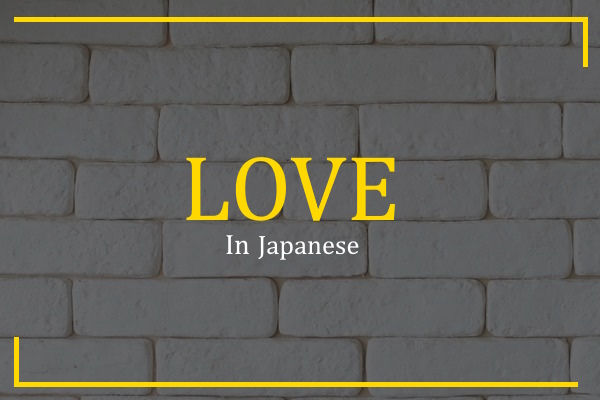Table of Contents
When couples have been together for quite some time, saying I love you in Japanese is not common. Most people who are in a serious relationship demonstrate their love through actions rather than verbally.
Love in Japanese: 愛
You will learn some of the most common Japanese “I love you” expressions and the usual romantic expressions you can use with your special someone in this post. If you’re up for that, let’s get started!
3 Best Ways to Say I Love You in Japanese
‘I love you’ can be expressed in a variety of ways in Japanese. These three ways, however, seem to be more popular with locals and are guaranteed to make someone fall more deeply in love with you. Additionally you can also learn love in 100+ different languages other than these 3 Japanese ways.
Aishiteru (愛してる)
This Japanese expression (pronounced as aye-shee-teh-ru) means I love you. Using the kanji love (ai), it refers to romantic love. Translating it into English, someone told me it means “I am deeply in love with you” and cautioned me only to use it when I am sure. It might be helpful to learn how to say this before you make a kokuhaku (confession) or a confession of love or interest.
Daisuki Da (大好き だ)
If you really like someone, you would say this in the most literal sense. A phrase like this is much stronger than simply saying suki da. Due to its generality, this is easy to use. A person, thing, place, activity, etc. can be expressed with it to show affection.
Suki Da (好き だ)
While it does not necessarily mean “love,” suki da can be used to indicate that you are interested in dating. Usually, this is heard during confessions after dates, according to the locals. As a result, do not use this phrase right after meeting someone as it might scare them off!

Arslan Hussain, founder of The Different Languages, is an experienced translator passionate about languages and cultures. Through his website, he shares his knowledge and love for different languages, making learning accessible and enjoyable.

